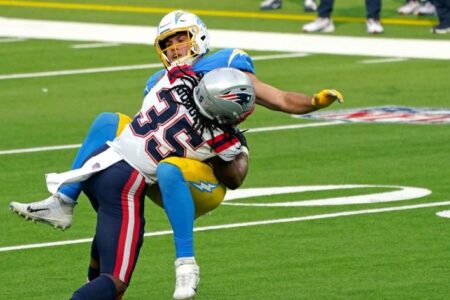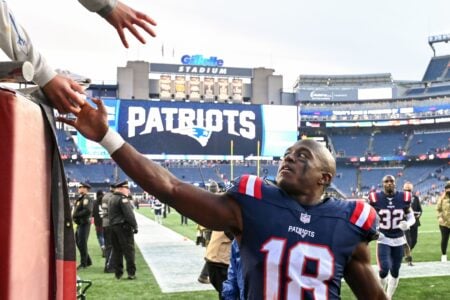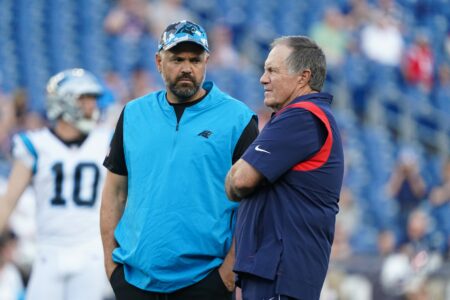Gumby
In the Starting Line-Up
- Joined
- Oct 4, 2004
- Messages
- 4,557
- Reaction score
- 2,838
Based on Broncos win in OT; it seems pretty obvious almost every team should elect to receive. But what do you do when your opening drive stalls?
What are your standards? In the following situation where on the field do you kick it, go for it, or punt?
Assuming Pats are first team to receive and it is now 4th and short (1-3 yards) at what spots on the field would you elect to go for it?
Also assuming:
1. You are not in Denver. (a sea level game)
2. Pats are playing a playoff caliber opponent (at least one of opponents D and/or O are top 10 )
With our porous secondary; I think from the Goal line to the 35 you need to go for it and just skip attempting to kick a FG. (only do the FG if you it is 4th and 4 yds or more)
From anything beyond 35 I would punt or pooch it and try to pin them back inside the 10.
YOUR GAMEPLAN???
What are your standards? In the following situation where on the field do you kick it, go for it, or punt?
Assuming Pats are first team to receive and it is now 4th and short (1-3 yards) at what spots on the field would you elect to go for it?
Also assuming:
1. You are not in Denver. (a sea level game)
2. Pats are playing a playoff caliber opponent (at least one of opponents D and/or O are top 10 )
With our porous secondary; I think from the Goal line to the 35 you need to go for it and just skip attempting to kick a FG. (only do the FG if you it is 4th and 4 yds or more)
From anything beyond 35 I would punt or pooch it and try to pin them back inside the 10.
YOUR GAMEPLAN???


















